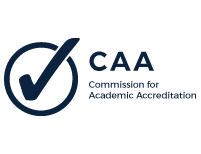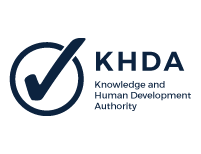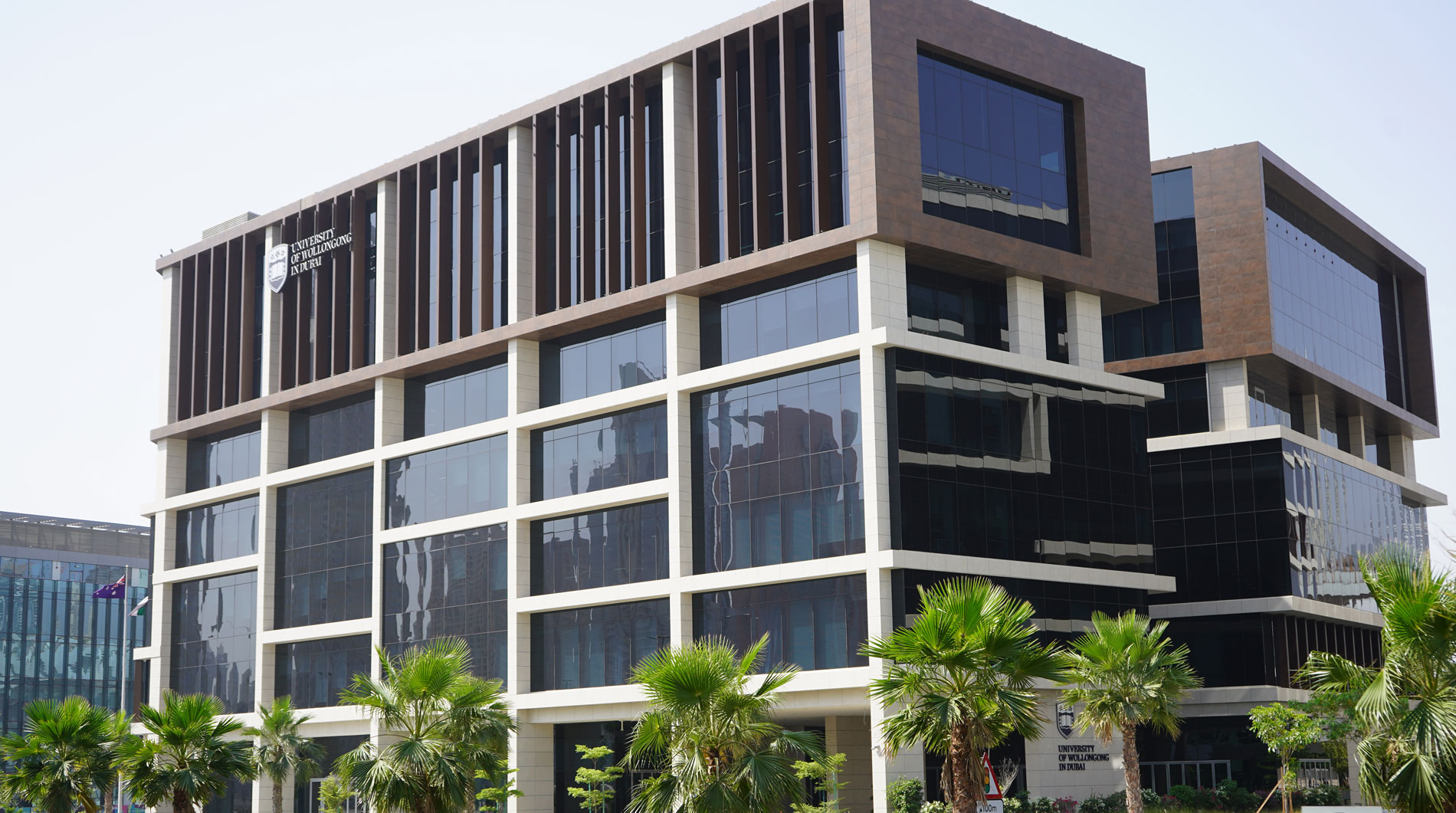- Home
- Degrees
- Postgraduate
- Business & Commerce
- Master of Business Analytics
Master of Business Analytics
Duration
18 - 24 months
10 - 12 subjects
Classes commence
| September (Autumn) |
| January (Winter) |
| April (Spring) |
Fees*
AED 9,415.35 / USD 2,565 per subject
*VAT 5% inclusive
The Information Age that we live in today has compelled all businesses to undertake global disruption and transformation, aided by data analytics.
- A Gartner survey of CEOs and senior executives revealed that Artificial Intelligence and Analytics is reported as the most impactful new technology for the third year in a row.
- The U.S. News & World Report’s annual job ranking list of 2022 showed that data scientists and analysts continue to be top careers, offering competitive salaries, opportunity for advancement, and a healthy work-life balance.
- A 2020 Burtch-Works study of data science salaries reported the latest salary trends based on experience. Entry-level data scientists have a median starting salary of $95,000 while experienced data scientist salaries range from $165,000 $250,000.
- According to a report by IBM, there will be a 39% growth in employer demand for demand for both data professionals.
The Master of Business Analytics curriculum is designed to prepare students to develop solid skills in data analytics for the challenges they will face as a business leader in today's rapidly changing environment. The program is taught as a combination of lectures and hands-on exercises in our ‘Business Analytics Lab’ using state of the art data science and analytics software. The Program is organized around four key themes:
- Theme 1: Foundations of Business in the Information Age
This incorporates subjects related to modern managerial accounting, marketing, organizational behaviour and operations management. - Theme 2: Data Science Technologies for Industry 4.0
This incorporates subjects covering cutting-edge data analytics, artificial intelligence (AI), machine learning (ML) and deep learning (DL) tools and techniques using industry standard software like Statistical Analysis and Systems (SAS) Viya, Structured Query Language (SQL) and Python through Jupyter Notebooks. - Theme 3: Application of Data Science technologies in Macro and Micro Business Analysis
This incorporates subjects covering the application of data science and analytics technologies in micro settings of an organization’s business functions (like accounting, human resources, operations, marketing and the like) as well as in macro settings of consumer markets, financial markets, labor markets and economic development across countries and regions. - Theme 4: Industry-based practicum
This is an industry-based analytics project where students will work on a real-life business scenario and develop an analytics solution in a live or a stimulated environment.
Students applying for a master's degree must have completed a bachelor's degree (or equivalent) at an accredited institution of higher education and have achieved the minimum grades outlined below:
| Country | Direct Admission | Probationary Entry* GPA 2.5-2.99 or equivalent |
Conditional Entry** GPA 2.0-2.49 or equivalent |
|---|---|---|---|
| Australia | 65% | 57% | 50% |
| Brazil | 7/10 | 6/10 | 5/10 |
| China | 75% | 63% | 50% |
| Colombia | 3.5/5 | 3.25/5 | 3/5 |
| Egypt | 65% (Good) | 57% | 50% (Pass) |
| India | 50% | 45% | 40% |
| 10 Point System: 7.0/10.0 | 10 Point System: 6.0/10.0 | 10 Point System: 5.0/10.0 | |
| 4 Point System: 3.0/4.0 | 4 Point System: 2.5/4.0 | 4 Point System: 2.0/4.0 | |
| Iran | 14 | 13 | 12 |
| Japan | 70/100 or 4/5 | 65/100 or 3.5/5 | 60/100 or 3/5 |
| Jordan | 70% | 60% | 50% |
| Kenya | 50% | 45% | 40% |
| Lebanon | 11 | 10.5 | 10 |
| Mexico | 8/10 | 7/10 | 6/10 |
| Nepal | 50% | 45% | 40% |
| Nigeria | 50% | 45% | 40% |
| Pakistan | 50% | 45% | 40% |
| Russia | Average of 4 | Average of 3.5 | Average of 3 |
| South Korea | 80/100 | 75/100 | 70/100 |
| UAE | 3 | 2.5 | 2 |
| UK | 2nd Class Honours with lower division (or min 50%) | 45% | Pass (or min 40%) |
| USA | 3 | 2.5 | 2 |
* Applicants with a bachelor’s degree in the relevant field of study, or its equivalent, with an overall GPA between 2.5 and 2.99 (on a 4.0 scale) may be conditionally admitted to a master’s program, only if they meet the necessary english language requirement. Such students must take a maximum of 18cp of subjects studied for the master’s degree during the period of conditional admission and must achieve an overall WAM of 55 in their first 3 subjects at the University. Students who fail to achieve this standard may have their enrolment discontinued.
** Applicants with a bachelor’s degree in the relevant field of study, or its equivalent, with an overall GPA between 2.0 and 2.49 (on a 4.0 scale) may be conditionally admitted to a master’s degree, only if they meet the necessary english language requirement and they will be required to complete a maximum of 18cp remedial non-credit bearing subjects prior to enrolment in their chosen master’s degree. Students must achieve a minimum WAM of 55 in these subjects in order to progress to the master’s degree or may have their enrolment discontinued.
Note:
[1] Unless otherwise stated, the entry requirements above are based on Section I institutions. Further details on alternate entry requirements can be obtained by contacting the Admissions department.
[2] As part of the admission requirements, prospective students for the Master of Business Analytics (MBAS) program will be required to provide a supporting statement of approximately 500 words of why they wish to enrol in the program, what benefits the program might provide them and what strengths they can bring to the program. Program Director may conduct an interview to assess the suitability of the application.
At UOWD, all classes are taught in English and in order to enrol in a master's degree you will need to submit one of the following certificate of English language proficiency:
| English Language Test | Entry Score |
|---|---|
| IELTS Academic |
Overall score of 6.0 with 6.0 in Reading and Writing and 5.0 in Listening and Speaking |
| TOEFL Internet based |
79 with not less than 20 in Writing, 18 in Reading, 17 in Listening, 16 in Speaking |
| TOEFL Computer based |
213 with a 4.0 TWE/Essay Writing |
| TOEFL* International paper based |
550 with a 4.0 TWE/Essay Writing |
| EmSAT Achieve English |
1400 |
Note: Students who have achieved an overall Academic IELTS score of 6, but with a minimum of 5 in reading and writing for their relevant program, may opt to take Academic Writing as an additional subject during their first semester at an additional fee of AED 1,050/USD 286. A 50% pass rate is required to clear the post enrolment condition. Alternatively, the student may opt to retake the IELTS test.
* Students admitted under this criterion must complete the test at AMIDEAST.
If you hold a bachelor's degree from a non-business discipline, you may be required to undertake a Graduate Foundation Course (GFC). The course must be successfully completed in the first semester.
The GFC does not accrue any academic credit towards the master's degree but will provide you with a foundation in Statistics, that may be required for your chosen field of study.
Read more information here.
In some cases your prior learning may be recognised by exempting you from completing specific subjects at UOWD on the basis of work you have already completed at another recognized institution or if you have a completed a bachelor degree in a relevant area from an accredited institution. In the case of Master of Business Analytics credit for prior learning may also be considered if you have a UOWD Graduate Certificate in Business.
If you are seeking credit for prior learning, you will need to submit an official academic transcripts showing all courses studied and the grades obtained, syllabus details (including information on course content) for the courses you have successfully completed and an explanation of the grading system, or proof of your work experience or further training. Your eligibility for Credit for Prior Learning will be decided in consultation with UOWD's Faculty Offices prior to the beginning of the program.
To make an application for your chosen program, complete the online application form and submit it along with all your supporting documentation (see below) prior to the application deadline.
Late applications may be accepted subject to the availability of places but applicants are encouraged to apply as early as possible.
The following records are required to process your application. Please ensure that all these documents accompany your UOWD Application for Admission form submittal:
- The original transcripts of your bachelor's degree results
- A Certificate of Completion
- A Statement of Purpose
(If the above documents are not in English, a certified English translation is required)
- Proof of your english language proficiency
(Note: Results from IELTS & TOEFL tests must be sent to the University directly from the IELTS or TOEFL testing centres quoting the UOWD institution code IELTS: AE109 / TOEFL: 7907)
- Your current resume or CV
- A copy of your UAE ID card (if applying from within the UAE)
- A copy of your passport (and Residence Visa, if resident in the UAE)
Additionally, if you are seeking advance standing in your chosen program:
- Certified copies of official academic transcripts showing all courses studied and grades obtained, syllabus details (including information on course content) of the courses you successfully completed and an explanation of the grading system.
Applications are required to obtain attestation / equivalency of their bachelor degree from the UAE Ministry of Education. The attestation / equivalency process is dependent upon whether you completed your bachelor's degree within the UAE or outside the UAE.
If the bachelor’s degree was completed outside UAE, you must have your bachelor's degree and transcripts/mark sheets certified by:
- The issuing University and/or recognised authority for tertiary education in the host country in which you completed your education
- The Ministry of Foreign Affairs in the host country
- The UAE Embassy in that host country OR the Embassy of the host country in UAE must attest the authenticity of the documents and attestations.
Additionally, the UAE Ministry of Education must issue an Equivalency Certificate. Applicants must have a valid UAE residency visa when applying for an Equivalency Certificate. In special cases where complying with conditions (2) and (3) are not feasible, the certificates may be verified against originals by Embassies in the UAE and the UAE Ministry of Foreign Affairs.
If you are unable to secure the Equivalency Certificate(s) as outlined above will be asked to sign a “Consent to Provide Documents” form agreeing to secure the equivalency. You will be permitted to commence your studies at UOWD, but will be given a maximum of one semester to obtain the equivalency certificate(s). UOWD reserves the right to take appropriate action against any applicant who cannot secure the appropriate documentation in this time, which may result in the termination of the student’s enrolment at UOWD.
For more information or assistance on attesting documents from outside UAE, click here.
Program Structure
The minimum requirement to graduate from the Master of Business Analytics program is 12 subjects. However, if you have completed a bachelor's degree in a relevant business area or a UOWD Graduate Certificate in Business, you may be able to complete the MBAS program in a total of ten (10) subjects in line with UOWD’s policy on Credit for Prior Learning decided in consultation with UOWD’s Faculty of Business office prior to the beginning of the program.
The typical structure of the program is shown below:
Core Business Management Subjects
Core Business Analytics Subjects
Business Analytics Electives
Capstone Project
Program Outcomes
- Prestigious and Accredited Degree: Upon completion of the program, all students will get a Master’s degree from University of Wollongong Australia, a university in the top 1% of the world universities, accord to QS World University rankings. This degree is fully accredited in the UAE by Commission for Academic Accreditation (CAA) and Knowledge and Human Development Authority (KHDA).
- Professional Certification: As a part of the SAS Joint Certification Program®, a collaboration of leading global universities using the industry leading vendor of analytics software, SAS upon completion of the Master of Business Analytics program, all students will get an Advanced Professional Certification from SAS.
- Career-Ready Skills: The completion of the program will equip the students with practical, hands-on and job ready skills in business analysis such as software like Statistical Analysis and Systems (SAS) Viya, Structured Query Language (SQL) and Python. This will enable them to be productive from day one at work.
- Doctoral Study Opportunities: Should students wish to pursue further research after completing this Master’s degree, UOW Dubai offers a PhD program in Business Analytics under the Faculty of Business.
The completion of the Master of Business Analytics program will open up a world of global career opportunities like
- Data Scientist
- Business Intelligence Analyst
- Business Analyst
- Data Engineer
- Management Consultant
- Market Research Analyst and many others
With the global nature of this degree, you will be equipped to work in any industry in private, semi private or government sector in any region of the world.
Accreditation and Recognition
All degrees at the University of Wollongong in Dubai are accredited by the Commission for Academic Accreditation (CAA) of the UAE Ministry of Education and are licensed by the Knowledge and Human Development Authority (KHDA). In addition, the degree is quality assured by UOW, which is registered with the Tertiary Education Quality and Standards Agency (TEQSA), the national regulator of the higher education sector in Australia.
Students will be issued a UOW Australia degree upon graduation.



Dr Osama Al-Hares
Associate Professor
(Director Postgraduate)
Dr Osama Al Hares's research interests lie in financial performance, corporate valuation and value relevance, corporate governance, earnings management, accounting for goodwill and asset impairments, emerging financial markets, and accounting disclosure practices and analysis. He has extensive consultancy and training experience in banking, investment, services, and small businesses sectors.
Read MoreFaculty

Open Day
Attend our next Open Day on Saturday, 27 April 2024.
Join our experts to learn more about our degrees and how you can enrol at UOWD.







